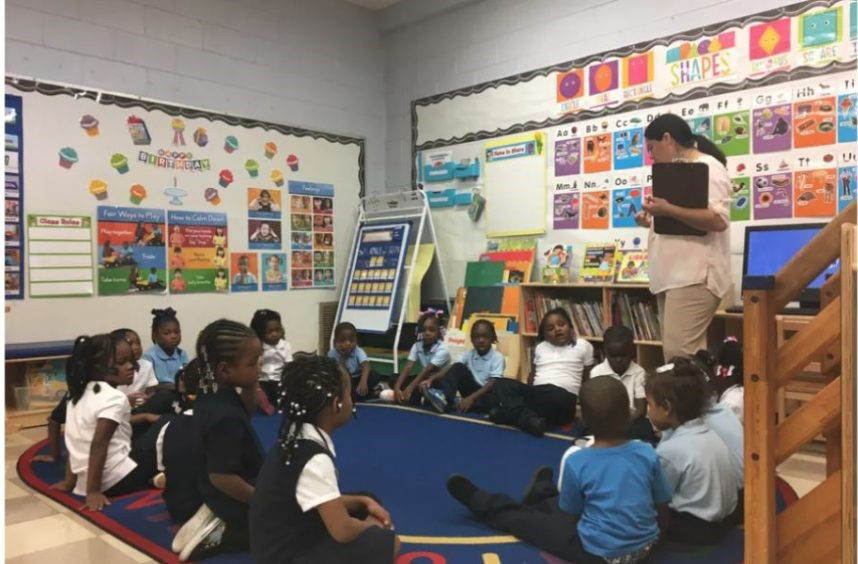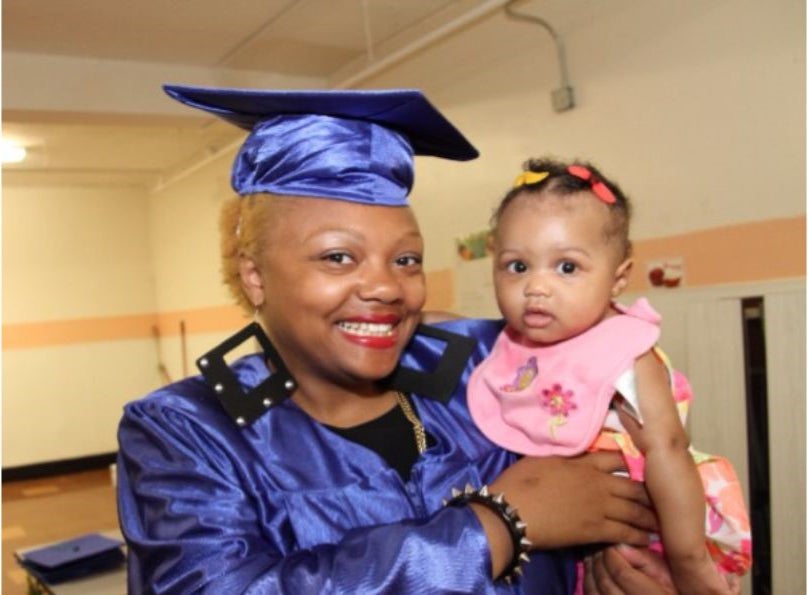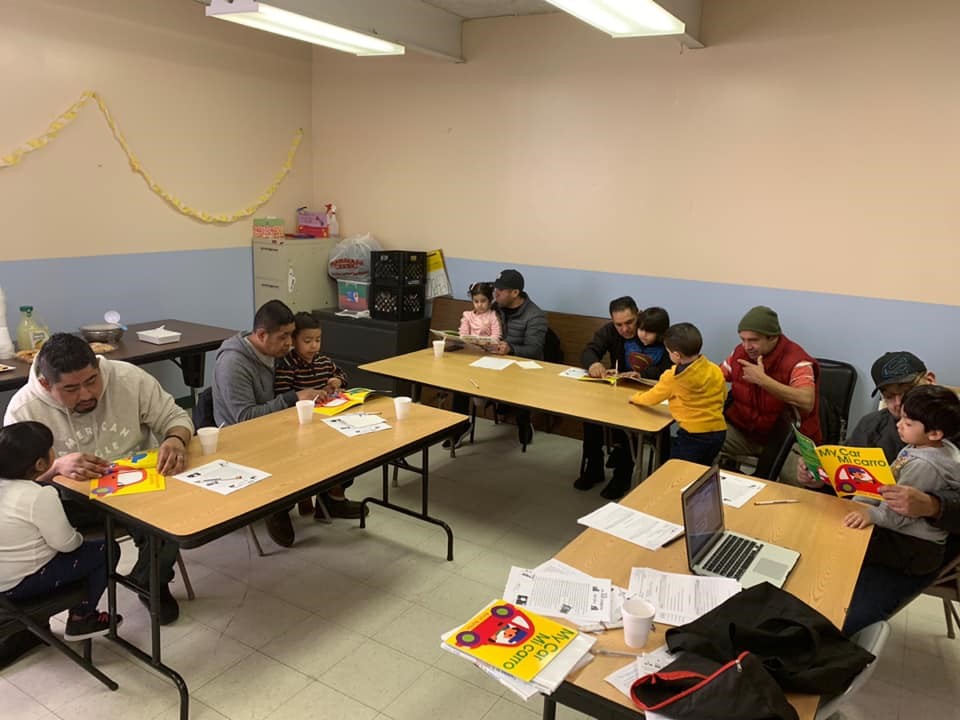UIC’s Center for Literacy
part 1

Jeneen Nicole Thomas began her time with UIC’s Center for Literacy as an AmeriCorps volunteer. Born and raised in Chicago, Thomas knew service was an important part of her life and she wanted to be active within her community. As a lifelong volunteer, she began with AmeriCorps in 2014 as a workshop coordinator within Malcom X College, providing resources such as books and learning materials to professionals working with Head Start families. It was there that she saw how teachers in underserved neighborhoods lacked access to basic supplies. “Many teachers shared that this was the only place they didn’t have to pay for supplies out of pocket,” says Thomas. “Even simple tasks such as making copies or picking up learning packets, that were very small to other people, were a huge relief to those educators who travelled from all over the city for this service.”
Her time there lead to a full time job with the Center for Literacy in the Community Engagement Office, helping volunteers within the Center as well as Chicago community-based organizations and UIC’s partnerships throughout the city. Her volunteer work further emboldened her passion to be an active member of her community. “These programs give opportunities to people who would otherwise be overlooked,” she says. “Our program participants are growing right along with us. They give people a voice, a chance and a space. We cannot put a price tag on the value of that.”
Part 2

The UIC Center for Literacy also offers multi-generational families the skills and confidence they need to thrive in a world where they have not been given the chance to previously.
The Center views education in a holistic way. Dr. Kira Baker-Doyle, Director of the Center for Literacy, says of their commitment to family learning, “If you’re going to care for the child in early childhood, you need to care for the whole family, as well as the whole community.”
In 2019, the Center’s collaboration with Head Start programs allowed them to provide services for more than 7,000 families, ranging from early education, to summer teen workshops, to assisting adults seeking a GED. In fact, annually the Center helps 50-100 adults earn a GED, the majority of whom go on to a two- or four-year colleges. Its city-wide parenting workshops averaged between 5,000 and 6,000 attendees annually, offering underserved families information on subjects including employability and family literacy.
Baker-Doyle quote
The Center for Literacy’s mission is all about educational equity. It’s all about giving folks these opportunities to further or deepen their own educational trajectories and go where they want to go.
Part 3

Dr. Baker-Doyle has seen first-hand how families on the south and west sides of Chicago have suffered without these resources and how they’ve been affected by societal structures throughout history. “The Center for Literacy’s mission is all about educational equity,” says Baker-Doyle. “It’s all about giving folks these opportunities to further or deepen their own educational trajectories and go where they want to go.”
Many families they work with have had negative school experiences and it’s hard for them to trust the educational system, both for themselves and their children. The Center works to repair that trust, build a sense of community and empower program participant to raise their voices. “We are here to create opportunity pathways for students to unlock their own potential and interests,” says Baker-Doyle. “The passion and intelligence is there, but in a lot of ways structural racism has blocked possibilities. We are trying to remove barriers so people can live out their potential.”
Dr. Baker-Doyle says it is critically important to know that this isn’t about teaching people the “right way” to succeed, but to shift the narrative and be advocates, removing problematic structural barriers.
Donor funding has been the sustaining force at the heart of the center. With generations of families seeking out their services, the Center is a source of reliable, consistent support thanks to gifts from generous donors. As Dr. Baker-Doyle looks to the future, she knows that there is more work to do. “We see the Center going forward as a place to bring together scholars who do work like this and being innovative. And applying some of the innovative practices and services in the field. That can’t happen without donor support.”